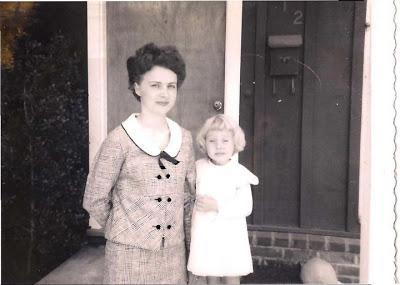
Mom and Me - June 1965.
The book of Genesis claims that Adam named the animals prior to Eve's appearance in the Garden of Eden. I have a hard time accepting that part of the creation story. In my own life, and in the lives of many others, it's Mother who named the world.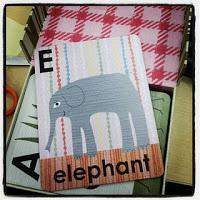
Photo by trec_lit
She just didn't teach me to identify the basics: cup, water, shoe, banana. Over the years, she taught me to name and label things I couldn't hold in my hand: love, pain, divinity, irony.
My mother has a keen mind, and she's a lifelong student. Even when she quit her job as a home economics teacher to raise me and my two sisters, she still read voraciously, wrote in her journal, talked to like-minded friends and in all ways closely examined the world around her.
At midlife, she returned to school and got a master's degree in a completely unrelated field, humanities. I ended up doing the same: first studying English and then at midlife getting a master's in the unrelated field, aging studies. I wanted to name the age-related changes to mind, body and spirit. Some of these changes are challenges, many of them are opportunities and gifts.
From my mother, I learned that it's impossible to name something without analyzing it at the same time. This act of analysis has been her most salient gift to me.
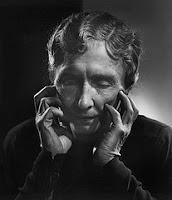
Photo by uppityrib
Because I was surrounded by books at home, I preferred the library to the playground while in public school. During elementary school, I spent many lunch hours with Mrs. Flook, our librarian.I remember as a fifth grader reading the biography of Helen Keller, amazed at how Anne Sullivan taught Helen as a child her first word "water."
Naming objects allowed Helen to move into an abstract plane where language made her capable of higher thought.
As a tween I pulled down the copy of Carl Jung's Man and His Symbols from my mother's bookshelf. It set my world on fire. No longer was a story about a crow merely a crow. The bird could be a symbol for night, trickery, death, or even the divine force carrying the sun across the sky.
When I started college, I first majored in elementary education. However, I found myself taking more English classes than required. I finally changed my major. Equipped with the ability to read, write and think critically, I could name and label the world around me--gaining greater control over any subject that might cross my path during my life course.
In graduate school, my Adam-like power to name all objects in the world came to a stop. I was paying tuition in part to name the world, to have dominion over it. The power to name has its limits.
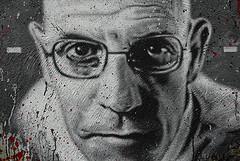
Michel Foucalt, photo by Abode of Chaos
While writing my master's thesis on category problems in American literary history, I learned about the subjective nature of category assignment thanks to George Lakoff's Women Fire and Dangerous Things: What Categories Reveal about the Mind.This was further illustrated by Michel Foucault's The Order of Things, which was a book that I hoped would expand my power. No. Foucault demystifies the work of academics.
In his preface he quotes Borges' fantastical taxonomy for animals, which illustrates how absurd are our own categories for things:
Animals are divided into: a) belonging to the Emperor, b) embalmed, c) tame, d) sucking pigs, e) sirens, f) fabulous, g) stray dogs, h) included in the present classification, i) frenzied, j) innumerable, k) drawn with a very fine camelhair brush, l) et. cetera m) having just broken he water pitcher, n) that from a long way off look like flies. (p. xv)As I fell out of Eden and into a world beyond language, I found myself taking refuge in yoga, zen buddhist meditations and literature, particularly poetry.
I was trying to find a world never named by my mother, but one that she's probably inhabited given some of the hardships that she's faced. Part of what I needed to learn could not be handed down through abstractions. I had to walk some rough roads myself and name my own strengths.
In the pages of literature, I found another woman experiencing this same fall from the abstract to the particular. In Charles Frazier's Cold Mountain, the heroine Ada falls from her heights as a wealthy, well-educated debutante. The war-torn South transforms her into a dirt-digging survivalist. Ada loses almost everything--but she still manages to find some things as well.
In the chapter "A Satisfied Mind," Ada no longer sees nature functioning as a symbol of a hidden realm.
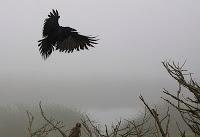
Photo by John Curley
Working in the fields, there are brief times when I go totally without thought. Not one idea crosses my mind, though my senses are alert to all around me. Should a crow fly over, I mark it in all its details, but I do not seek analogy for its blackness. I know it is a type of nothing, not metaphoric. A thing unto itself without comparison. I believe those moments to be the root of my new mien. (p. 258).As I type this, my eleven-year-old daughter--fresh from washing her hair--asks me, "Momma. Is it called a hair dryer or a blow dryer?" I smile but do not answer her.
Earlier today we looked up ways to name and label various types of fingerprints: arch, loop, whorl. After I finish this post, I'll use my fingertips to massage her scalp, soothing her to sleep the way my mother would stroke my hair when I was a sleepy little girl.
And I will imagine for my daughter a future where she can name and label much of this world. I also bless her so that she she can live through nameless challenges and embrace nameless joys.
This is a blog hop! Here are posts by other bloggers on the same topic. Enjoy.

